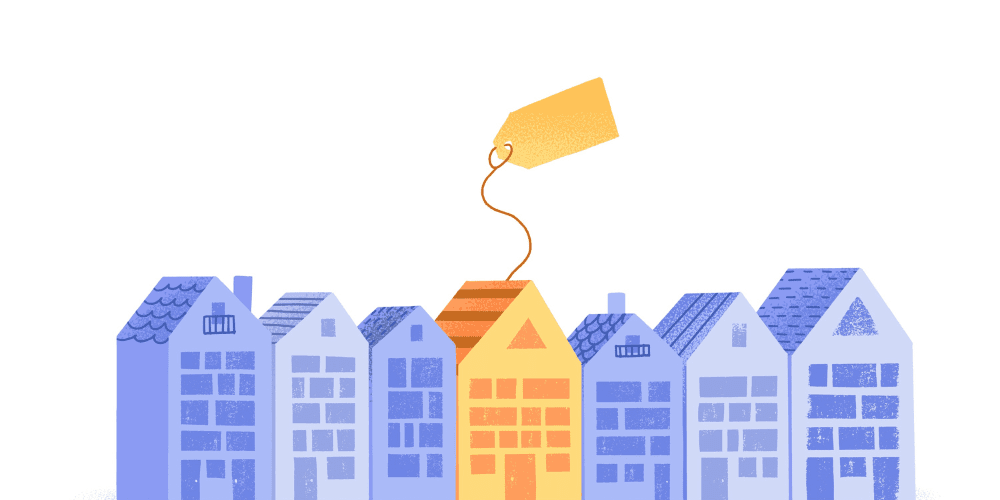What Does Priced to Sell Mean? | Should You List Your House as “Priced to Sell”? | Choosing Your Listing Price | Alternatives | Choosing Your Listing Price | Buying a Home That Is “Priced to Sell” | Get Help Setting a Price for Your House
| “Priced to Sell” Meaning, Explained |
|---|
| Listing your home as “priced to sell” means you’re selling it at a competitive price in order to sell faster. But buyers will probably think your home has some red flags. |
You’re planning to sell your house — and you need it sold fast. While cash buyer companies like We Buy Ugly Houses promise an instant sale, you’ll only get a fraction of your home’s true value.
Instead, we recommend listing your property as “priced to sell.” This is a strategy real estate agents use to help sellers find a buyer fast — usually by pricing your home just below fair market value.
But before you decide to list your house as “priced to sell,” you should be aware of the connotation. The phrase can sometimes make buyers assume the house has significant defects — so it’s probably best to avoid using it unless you’re working with an experienced real estate agent who knows how to market your home’s best features.
A qualified local real estate agent can help you balance the need to sell immediately against the risk of accepting a lowball offer.
What Does Priced to Sell Mean?
In real estate, “priced to sell” means the home is listed competitively for what it offers. Sellers who list their homes this way are motivated to sell quickly and use a noticeably low price to get value-shopping buyers’ attention.
Lower prices often give speed-motivated sellers an advantage in a competitive real estate market.
So, what’s the difference between listing your home as “priced to sell” and just pricing your home lower than competitors? A significant dollar amount. Houses simply priced lower than other houses in the market might be $2,000 to $5,000 less. However, “priced to sell” could be $10,000 or $25,000 — or even more — less than the home’s value.
Including “priced to sell” in an ad can signal that the seller feels pressure to get rid of the house quickly. Or it might be a marketing scheme to get attention when the price is actually at fair market value.
Should You List Your House as Priced to Sell?
Often, sellers price their homes for less because they are motivated to sell in a hurry.
For example, suppose you’re getting a divorce or relocating for a job that starts in two weeks. You don’t have time to lose before life moves on, so selling the house is a high priority.
On the other hand, your motivation may be moving closer to the grandkids or downsizing ahead of retirement. In that case, you may not be in such a hurry to sell.
Pros and Cons of a Priced to Sell Strategy
| Pros | Cons |
|---|---|
|
|
Listing Price vs. Selling Price
The listing price is the price tag you put on the house. You would use a lower listing price if you wanted to get immediate attention from buyers.
The selling price is the amount the house actually sells for. Most homes do not sell for their listing price because of negotiations.
How much you receive for your home depends on your local real estate market. If people aren’t moving to your area, it will be harder to sell your house than if you live in a fast-growing city or an up-and-coming neighborhood.
The bottom line is that “priced to sell” is a strategy to invite buyer negotiations. Potential buyers believe you’re in a rush to sell and willing to take less for your home. As a result, they may offer even less than the listing price.
How to Choose a Listing Price to Sell Your Home Fast
When “pricing to sell” your home quickly, you should spend significant time considering your listing price. If you list your home at or above fair market value, buyers will get a chuckle from seeing “priced to sell” in the listing copy.
According to a survey of 1,000 homeowners by our friends at the Clever Data Center, 20% of sellers said pricing their home was the most challenging part of selling. If you’re finding it a challenge to price your home, you’re not alone. Here are some tips to help ease the struggle.
Start with a Home Value Estimator
First, use a home value estimator to establish a baseline price. These calculators compare your home’s dimensions, features, and neighborhood with millions of other homes in their database. Then it gives you an estimation of what your home may be worth.
You can find home value estimators at Zillow, Trulia, Redfin, Realtor.com, and other similar websites.
Compare Your House to Similar Properties
Once you have a baseline price, look at other similar homes in your area to determine a more focused home value. This process is also called a competitive market analysis (or comps for short), and it’s a strategy real estate agents use to recommend listing prices.
How to find comps in your area:
- Head over to one of the real estate websites like realtor.com.
- Search for homes nearby that sold recently.
- Narrow your list of the most similar houses.
- Account for special features your home has that others do not, like a pool or granite countertops.
- Calculate the average sale price of your list of houses.
Don’t Overprice Your Home
If selling your house fast is important, don’t overprice it.
While it’s tempting to use a higher listing price to build in a negotiation buffer, the strategy can backfire. Buyers will speculate why your home hasn’t sold, which often results in lower offers.
Instead, make sure your listing price is an accurate reflection of the home’s fair market value.
Homes that are priced too high usually sit on the market for longer than they should.
What Happens If You Set Your Home Price Too Low?
Pricing your home too low can raise red flags for buyers. Too-low prices often make potential buyers wonder what’s wrong with the property and they may worry they’ll end up buying something that will cost too much to repair.
Alternative Ways to Incentivize Buyers and Sell Fast
First, avoid using the term “priced to sell.” The phrase has become cliché and can diminish buyers’ interest. Instead, get buyers excited about your home with these strategies:
- Price your home just under market value. It’s specific and lets buyers know they’re getting a deal.
- Host an open house immediately after listing. Open houses bring multiple buyers to your home simultaneously and show you’re serious about selling your house quickly.
- Showcase the home’s best features. Point out your house’s unique features — and make sure it’s clean and decluttered when you take photos and when it’s shown to prospective buyers. Get everything in good working order, and spruce up the home’s curb appeal to encourage buyers to want to see more.
- Communicate your short timeline to your real estate agent. If your agent knows you need to sell quickly, they can notify buyer’s agents that there’s room to negotiate.
What If You’re Buying a Home That Is Priced to Sell?
As a buyer, you might think a house that’s priced to sell automatically equals a good deal. However, that isn’t always the case. Consider why the seller is listing their house at such a low price.
Is there something wrong with the property? Is there a major repair needed? Are the neighbors problematic? Find out why the seller is in a hurry. Ask lots of questions.
Make sure to have a thorough inspection completed to find potential hidden issues that could justify an unexplained price reduction. Also, visit the neighborhood on different days of the week and at different times of the day and night to get a sense of its activity and personality.
To get around the marketing ploy, conduct your own price comparison of similar properties to find out if it’s truly priced well or not.
Get Help Setting a Price for Your House
Deciding on a selling price can be one of the most challenging parts of selling your home. But there’s no reason to do it all alone.
Getting some help from a professional can make all the difference when trying to sell your home quickly.
Recommended Reading
Frequently Asked Questions about Priced to Sell Listings
What does priced as-is mean?
Listing your house “priced as-is” means the seller is selling the house without making any repairs or offering repair credit for the buyer to fix problems that may come up during a home inspection. Learn more about as-is property sales.
Is selling price the same as sale price?
No. Selling price is the final price the house actually sells at. Sale price is a discount on the listing price to make the house more appealing to buyers. Learn more about pricing a house.
Do all homeowners want to sell their houses quickly?
No. Not all homeowners want to sell their houses quickly, but there are some circumstances like divorce or a new job in a different state that require a speedy sale. Learn how to sell your house fast.
Can you set your home price too low?
Yes. Setting your home price too low can turn off buyers who might think something is wrong with the home. It can also leave a lot of money on the table because buyers will probably try to negotiate an even lower price than your listing price, especially if they think you’re under pressure to sell quickly.Learn how to set your home price.
What if a house is priced too high?
If a house is priced too high, it might not sell quickly or even at all. A house that is sitting on the market for a long time because the seller refuses to lower the price can be a red flag to buyers. Price your home competitively according to your local market to avoid these issues. Check your local market conditions before setting a price.


